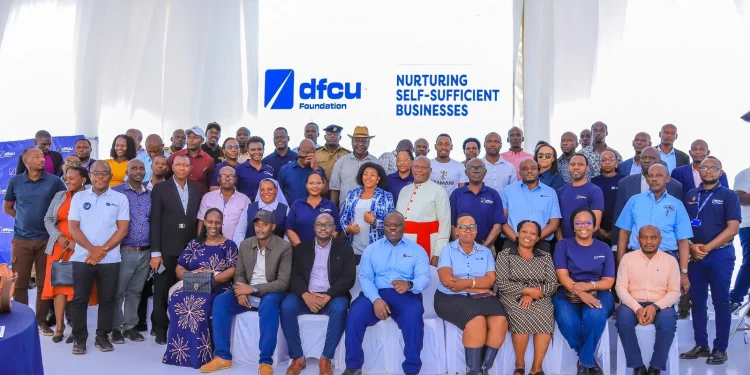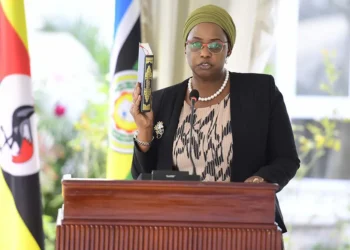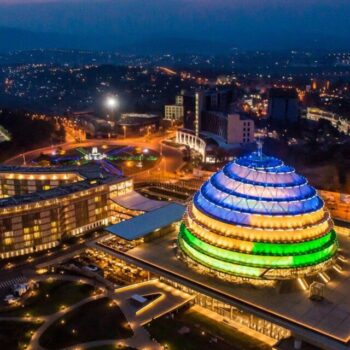In a modest but meaningful gathering in western Uganda’s Mbarara District, dfcu Bank unveiled its latest move in the effort to lift up Uganda’s farmers—this time, with a new name and a broader mission. The Agribusiness Development Centre (ADC), long associated with dfcu’s agricultural support efforts, has officially been rebranded as the dfcu Foundation, a shift that bank executives say marks both continuity and expansion.
Under the theme “A New Name, A Renewed Commitment,” the launch leaned heavily into one message: more farmers, more resources, more reach.
“We’re not walking away from agribusiness. We’re building on it,” said Mabel Ndawula, the Foundation’s new Executive Director. “This is a move to double our impact, to go beyond what we achieved with ADC.” Ndawula noted that the program had already reached 59,000 people and now aims to impact 100,000 more over the next five years—with a clear focus on youth and women, who make up the majority of Uganda’s population and the heart of its agricultural labor force.
Uganda’s agriculture sector is often called the backbone of the economy—and with good reason. It employs over 70 percent of the population and contributes nearly a quarter of the national GDP. But it also faces stubborn challenges: limited access to financing, unpredictable markets, and a lack of structured business support.
dfcu executives say the Foundation is designed to tackle those head-on.
Youmight also like
Kate K Kiiza, dfcu Bank’s Executive Director, laid out the expanded vision: “This isn’t just about farming anymore. It’s about financial literacy, mentorship, enterprise development, and sustainable economic progress. We want every farmer and rural entrepreneur to have the tools they need—not just to survive, but to thrive.”
She described the Foundation as a way to bring the bank’s purpose—“Transforming Lives and Businesses in Uganda”—closer to the ground. “Agricultural growth is economic growth,” Kiiza said. “And we are here to support that.”
At the event, the atmosphere was a mix of formality and hope. Farmer group leaders and local government officials mingled with financial experts, all listening closely as the bank’s team outlined its ambitions. The Foundation’s approach will include training, access to credit, market linkages, and technology-driven solutions—all aimed at lifting productivity and incomes for farmers and small business owners.
Still, the task is massive. Uganda’s young population—about 78 percent under the age of 30—faces widespread unemployment. For many, farming isn’t a fallback. It’s a lifeline.
“Farming and small business development offer some of the most realistic paths out of poverty,” Ndawula said. “And with the right support, they can become engines of economic empowerment.”
In the coming months, the Foundation plans to roll out regional programs across the country. The goal is less about top-down development and more about meeting farmers where they are—with the right tools, at the right time.
For dfcu, the rebrand is as much about symbolism as it is about structure. The name may have changed, but the message was clear: the work continues—only now, it’s reaching further.

















